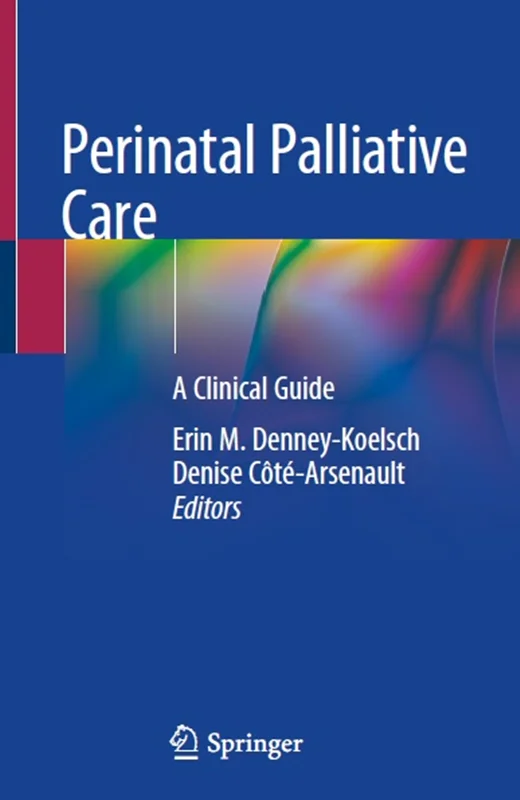This unique book is a first-of-its-kind resource that comprehensively covers each facet and challenge of providing optimal perinatal palliative care. Designed for a wide and multi-disciplinary audience, the subjects covered range from theoretical to the clinical and the practically relevant, and all chapters include case studies that provide real-world scenarios as additional teaching tools for the reader.
Perinatal Palliative Care: A Clinical Guide is divided into four sections. Part One provides the foundation, covering an overview of the field, key theories that guide the practice of perinatal palliative care, and includes a discussion of perinatal ethics and parental experiences and needs upon receiving a life-limiting fetal diagnosis. Part Two delves further into practical clinical care, guiding readers through issues of obstetrical management, genetic counseling, neonatal pain management, non-pain symptom management, spiritual care, and perinatal bereavement care. Part Three discusses models of perinatal palliative care, closely examining evidence for different types of PPC programs: from hospital-based programs, to community-based care, and examines issues of interdisciplinary PPC care coordination, birth planning, and team support. Finally, Part Four concludes the book with a close look at special considerations in the field. In this section, racial, ethnic, and cultural perspectives and implications for PPC are discussed, along with lessons in how to provide PPC for a wide-range of clinical and other healthcare workers. The book closes with a look to the future of the field of perinatal palliative care.
Thorough and practical, Perinatal Palliative Care: A Clinical Guide is an ideal resource for any healthcare practitioner working with these vulnerable patient populations, from palliative care specialists, to obstetricians, midwifes, neonatologists, hospice providers, nurses, doulas, social workers, chaplains, therapists, ethicists, and child life specialists.

